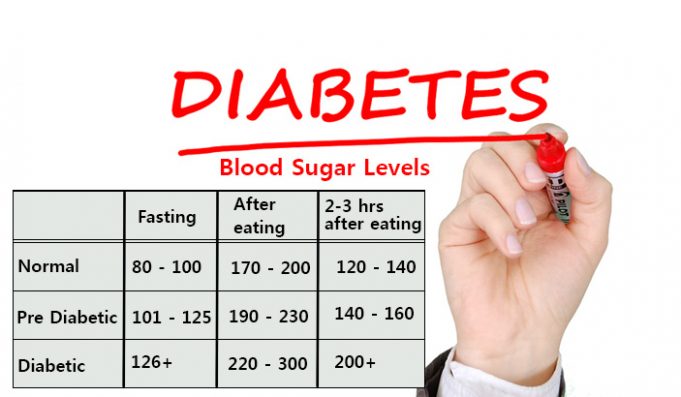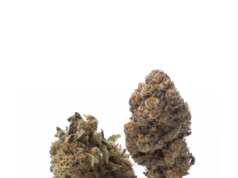Diabetes is a disease which is affected by diet, due to the changes in blood sugar levels that result from eating certain foods. Diabetic diet foods sometimes make claims regarding their ability to maintain a normal blood sugar range, but these claims are not always based on fact. Low-carb products can also be helpful for a diabetic, but it is necessary to read labels carefully in order to achieve the best results. Cooking for a diabetic, including making diabetic desserts, is made possible through the use of sugar substitutes with a low glycemic impact.
Diabetes and Normal Blood Sugar Ranges
Both type 1 and type 2 diabetes are medical conditions characterized by high blood glucose levels. Type 1 diabetes, also known as juvenile diabetes, results in an inability to produce insulin. Type 2 diabetes, or adult-onset diabetes, develops as a result of insulin resistance and inadequate insulin production. Diabetic individuals are affected by the food they eat, due to the way that food impacts blood sugar levels.
Carbohydrates and Diabetes
Carbohydrates increase blood sugar levels due to the fact that they are converted into sugar and absorbed into the bloodstream. Simple carbohydrates, such as products made with refined flour, are converted more quickly, while complex carbohydrates are absorbed more slowly. Any diabetic product with high amounts of carbohydrate, particularly refined flour or high glycemic sugar substitutes, should be avoided when cooking for a diabetic, in order to maintain normal blood glucose levels.
Low-Carb Diabetic Diet Foods
Many low-carb products are marketed toward diabetics, due to the fact that a low carbohydrate diet tends to benefit a diabetic by lowering blood sugar levels. When choosing diabetic products, it is important to read labels carefully, and be aware of the effects of the ingredients. While products may claim to be sugar-free, they may contain other ingredients that are other types of sugar, such as corn syrup, evaporated cane juice, honey, or fructose. Other ingredients, such as maltodextrin, are instantly converted into sugar by the body, quickly raising blood sugar levels. Diabetic products containing these ingredients should be avoided as much as possible.
Cooking Diabetic Desserts
While cooking for a diabetic may be challenging, particularly when it comes to dessert, it is not impossible. Low glycemic sweeteners, such as xylitol, erithrytol and sucralose, can be used to sweeten many types of food, even during cooking. Other artificial sweeteners, such as saccharin and aspartame, will not retain their sweetness during cooking, due to a chemical breakdown caused by the heating process. Many sugar alcohols are commonly used in sweet low-carb products, such as sugar-free chocolate chips. The consumption of sugar alcohols should be limited carefully, due to uncomfortable digestive effects, and potential effects on blood sugar levels.


















